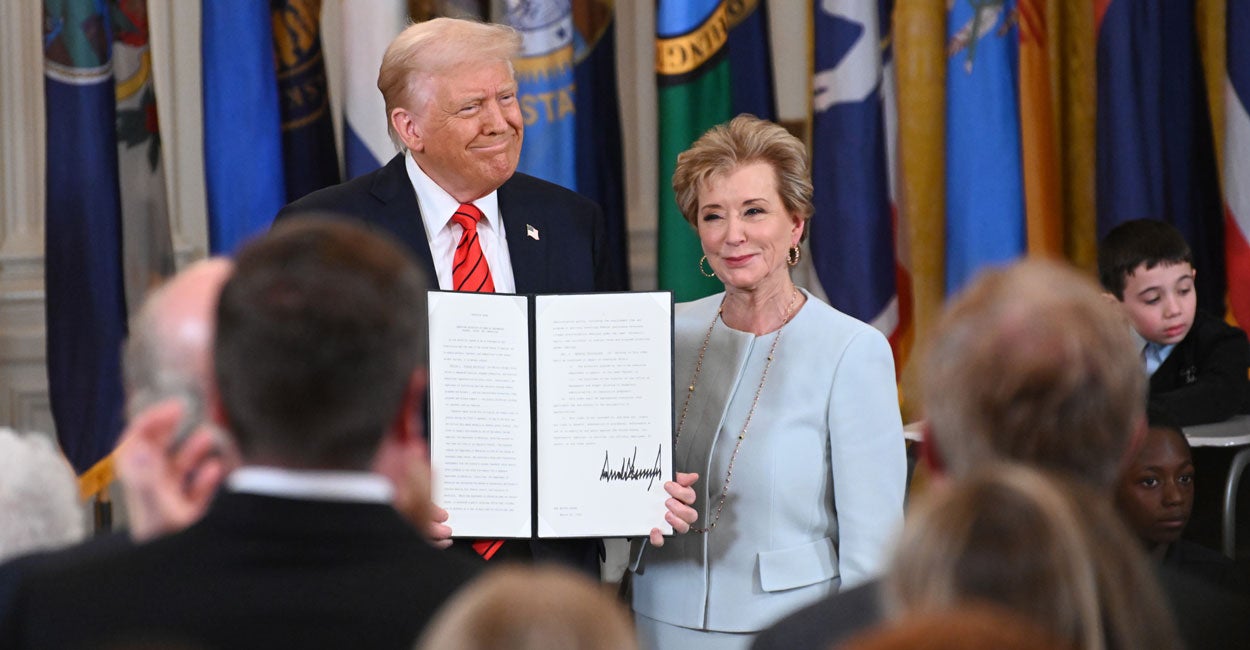
www.dailysignal.com
It’s Not Over Till It’s Over: ‘Big, Beautiful Bill’ Battle Returns to House
After the Senate’s narrow 51-50 passage of the One Big, Beautiful Bill Act on Tuesday, with Vice President JD Vance’s tiebreaking vote, Republican senators celebrated finally getting the massive 10-year fiscal framework across the finish line there.
The bill passed the Senate despite the “no” votes from Republican Sens. Ron Paul of Kentucky, Susan Collins of Maine, and Thom Tillis of North Carolina.
Senate leadership spent plenty of time talking to Sen. Lisa Murkowski, R-Alaska, who was one of the three Republicans who helped kill another GOP 10-year budget bill back in 2018, but she ultimately fell in line this time.
Senate Majority Leader John Thune, R-S.D., explained to reporters that “it’s a collaborative process,” when asked how he was able to get Murkowski on board with the bill.
The budget bill included provisions that provided a tax exemption for fishermen in Western Alaska, allowed some whaling captains to deduct more of their expenses, and put more federal dollars behind Alaskan health care providers.
Sens. Lisa Murkowski, R-Alaska (left), and Susan Collins, R-Maine. (Al Drago/Getty Images)
But those concessions are small potatoes in the grand scheme of things, as the bill provides funding for border security and defense while extending and expanding Trump’s 2017 first-term tax cuts.
“With this legislation, we are fulfilling the mandate we were entrusted with last November and setting our country–and the American people–up to be safer, stronger, and more prosperous,” Thune said on the Senate floor shortly after the vote.
Another of the last-minute issues that Republicans resolved to get to final passage was that of deregulation of artificial intelligence.
The bill that came to the floor contained a provision that would cut any state that regulated AI off from federal broadband funding. Sen. Marsha Blackburn, R-Tenn., who has for a long time quarreled with Big Tech, managed to strike the controversial provision with an amendment that passed 99-1. The sole holdout was Tillis, who on Sunday announced he would not be seeking reelection in 2026.
The Daily Signal asked Sen. James Lankford, R-Okla., how he felt about the removal of the artificial intelligence provision.
“99 to one, apparently everybody was OK with it,” Lankford said.
“It’s not finished. I mean, that was the biggest issue. It’s a budget bill. When you’re dealing with a reconciliation bill, it’s not a policy bill,” he added.
The Oklahoma senator contended that an issue as significant as artificial intelligence might not be easily addressed in a budget bill.
“The real challenge was, if you’re going to really get into the weeds on this, it needs to be a policy piece that we can, in a bipartisan way, work through the details and make sure that we get this right and not try to squeeze it into a budget piece,” he said.
Sen. James Lankford, R-Okla. (Nathan Posner/Anadolu via Getty Images)
He added that Congress must address some of these outstanding issues in future legislation, outside of the budget reconciliation process.
The “Kids Online Safety [Act]. We’ve got to get that done,” he said, referencing legislation that Blackburn has proposed to provide a regulatory framework for Big Tech.
“I mean, there’s multiple pieces that are out there, that are unfinished business that, quite frankly, our states have done, and many other countries have stepped in to be able to do, and we’ve not been able to get the bipartisan agreement to get it done,” Lankford said.
Will the House of Representatives Kill It?
Now, the House Republican leadership is in a mad dash to get the Senate’s version of the One Big, Beautiful Bill Act to Trump’s desk by July 4.
The narrow margin in the Senate, as well as President Donald Trump’s insistence on the Independence Day deadline, will apply a lot of pressure on House Republicans to vote “yes.”
But it won’t be easy. Multiple members of the fiscal hawk House Freedom Caucus are currently speaking harshly of the bill, saying it grows deficits and maintains parts of President Joe Biden’s legacy, such as green energy subsidies and an ever-growing welfare state.
Freedom Caucus members have so far gone along with party leadership’s efforts, despite their vocal reservations, but this time they sound serious about their complaints.
“I’ve not heard one person irrefutably tell me that there are not going to be higher deficits over the next five years as a result of this bill,” Rep. Chip Roy, R-Texas, said shortly after its passage.
Rep. Chip Roy, R-Texas. (Kevin Dietsch/Getty Images)
He later said on the social media platform X that remaining green energy tax credits are “a deal-killer of an already bad deal.”
Rep. Keith Self, R-Texas, went so far as to say that the “Senate’s version of the OBBB is UNACCEPTABLE.”
Rep. Ralph Norman, R-S.C., shortly thereafter said he would oppose the rule to bring the legislation to the floor if it is left unchanged.
“I’m against this, because of what the Senate did. I’ll vote against it here, and I’ll vote against it on the floor until we get it right,” he said in a Rules Committee hearing.
Meanwhile, Rep. Andy Ogles, R-Tenn., is suggesting another option—an amendment to replace the entire Senate bill text with the original House plan.
Yes. If the House doesn’t pass the Senate’s version of the OBBB, then it turns into legislative ping-pong. But that's okay. That’s how our founders designed the system. Like I’ve been saying for weeks: let’s STAY IN DC and get it RIGHT for the American People. No recess for…— Rep. Andy Ogles (@RepOgles) July 1, 2025
Before the bill’s passage in the Senate, House Freedom Caucus Chairman Rep. Andy Harris, R-Md., told The Daily Signal that if the Senate’s framework increased deficits beyond the House’s version, they would find a way to stop it without killing the whole budget effort.
“I know there are a group of members who will either insist that the only vote they’ll take is to go to conference on it, or that we will just not approve the rule to bring it to debate,” he said.
In conference, lawmakers from both houses would sort out the differences.
He added, “Both of those options actually keep the bill alive, because obviously, if we voted down the bill, then we’d have to start at ground zero with regards to redoing this reconciliation effort.”
Meanwhile, House Speaker Mike Johnson is advocating the Senate bill’s passage, while acknowledging that the Senate changed it “little further than many of us would have preferred” in breaking from the House’s plan.
“My objective and my responsibility is to get that bill over the line,” he said Tuesday. “So, we will do everything possible to do that.”
The post It’s Not Over Till It’s Over: ‘Big, Beautiful Bill’ Battle Returns to House appeared first on The Daily Signal.














